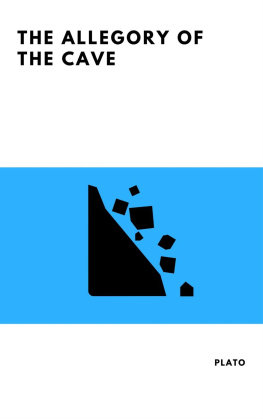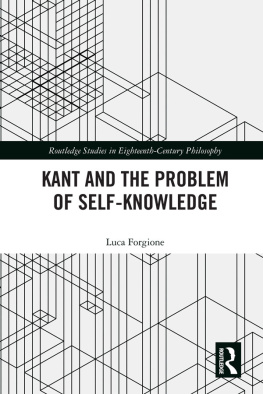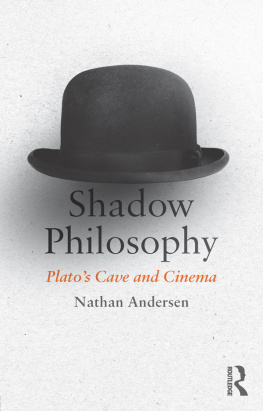philosophy ideas
you really need to know

Ben Dupr

Contents
PROBLEMS OF KNOWLEDGE
MIND MATTERS
ETHICS
ANIMAL RIGHTS
LOGIC AND MEANING
SCIENCE
AESTHETICS
RELIGION
POLITICS, JUSTICE AND SOCIETY
Introduction
For most of its long history philosophy has had more than its share of dangerous people armed with dangerous ideas. On the strength of their supposedly subversive ideas, Descartes, Spinoza, Hume and Rousseau, to name but a few, were variously threatened with excommunication, obliged to postpone publication of their works, denied professional preferment, or forced into exile. And most notorious of all, the Athenian state regarded Socrates as so baneful an influence that they executed him. Not many of todays philosophers are executed for their beliefs, which is a pityto the extent, at least, that it is a measure of how much the sense of danger has ebbed away.
Philosophy is now seen as the archetypal academic discipline, its practitioners firmly closeted in their ivory towers, detached from the problems of real life. The caricature is in many ways far from the truth. The questions of philosophy may be invariably profound and often difficult, but they also matter. Science, for instance, has the potential to fill the toyshop with all sorts of wonderful toys, from designer babies to GM foods, but unfortunately it has not providedand cannot providethe instruction book. To decide what we should do, rather than what we can do, we must turn to philosophy. Sometimes philosophers get swept along by the sheer delight of hearing their own brains turning over (and it can indeed make entertaining listening), but more often they bring clarity and understanding to questions that we should all care about. It is precisely these questions that this book aims to pick out and explore.
It is customary on these occasions for authors to heap most of the credit on others and to reserve most of the blame for themselves; customary, perhaps, but strangely illogical (since credit and blame should surely stick together), so hardly commendable in a book on philosophy. In the spirit of P.G. Wodehouse, therefore, who dedicated The Heart of a Goof to his daughter, without whose never-failing sympathy and encouragement [the] book would have been finished in half the time, I gladly apportion at least some of the credit (etc.) to others. In particular, I happily give the credit for all the timelines and many of the displayed quotations to my good-humored and industrious editor, Keith Mansfield. I would also like to thank my publisher at Quercus, Richard Milbank, for his unflagging confidence and support. And my greatest thanks go to my wife, Geraldine, and children, Sophie and Lydia, without whose never-failing sympathy
The brain in a vat
Imagine that a human being has been subjected to an operation by an evil scientist. The persons brain has been removed from the body and placed in a vat of nutrients which keeps the brain alive. The nerve endings have been connected to a super-scientific computer which causes the person to have the illusion that everything is perfectly normal. There seem to be people, objects, the sky, etc.; but really all the person is experiencing is the result of electronic impulses traveling from the computer to the nerve endings.
A nightmare scenario, the stuff of science-fiction? Perhaps, but of course thats exactly what you would say if you were a brain in a vat! Your brain may be in a vat rather than a skull, but your every experience is exactly as it would have been if you were living as a real body in a real world. The world around youyour chair, the book in your hands, your hands themselvesare all part of the illusion, thoughts and sensations fed into your disembodied brain by the scientists super-powerful computer.
You probably dont believe you are a brain floating in a vat. Most philosophers probably dont believe theyre brains in vats. But you dont have to believe it, you only have to admit you cant be certain that youre not. The problem is that, if you do happen to be a brain in a vat (and you just cant rule out the possibility), all the things you think you know about the world will be false. And if thats possible you dont really know anything at all. The mere possibility appears to undermine our claims to knowledge about the external world. So is there any escape from the vat?
In popular culture
Ideas such as the brain in a vat have proved so thought-provoking and suggestive that they have led to numerous popular incarnations. One of the most successful was the 1999 movie The Matrix, in which computer hacker Neo (played by Keanu Reeves) discovers that the world of 1999 America is in fact a virtual simulation created by a malign cyber-intelligence and that he and other humans are kept within fluid-filled pods, wired up to a vast computer. The film presents a dramatic elaboration of the brain-in-a-vat scenario, all the main elements of which are reproduced. The success and impact of The Matrix is a reminder of the force of extreme skeptical arguments.
Vat origins The classic modern telling of the brain-in-a-vat story above was given by the American philosopher Hilary Putnam in his 1981 book Reason, Truth, and History, but the germ of the idea has a much longer history. Putnams thought experiment is essentially an updated version of a 17th-century horror storythe evil demon (malin gnie) conjured up by the French philosopher Ren Descartes in his 1641 Meditations on First Philosophy.
Descartess aim was to reconstruct the edifice of human knowledge on unshakeable foundations, for which he adopted his method of doubt,he discarded any beliefs susceptible to the slightest degree of uncertainty. After pointing out the unreliability of our senses and the confusion created by dreams, Descartes pushed his method of doubt to the limit:
I shall suppose that some malicious demon of the utmost power and cunning has employed all his energies in order to deceive me. I shall think that the sky, the air, the earth, colors, shapes, sounds and all external things are merely the delusions of dreams which he has devised to ensnare my judgment.
).
Unfortunately for Putnam and Descartes, although both are playing devils advocateadopting skeptical positions in order to confound skepticismmany philosophers have been more impressed by their skill in setting the skeptical trap than by their subsequent attempts to extricate themselves from it. Appealing to his own causal theory of meaning, Putnam attempts to show that the brain-in-a-vat scenario is incoherent, but at most he appears to show that a brain in a vat could not in fact express the thought that it was a brain in a vat. In effect, he demonstrates that the state of being an envatted brain is invisible and indescribable from within, but it is unclear that this semantic victory (if such it is) goes far to address the problem in relation to knowledge.
The simulation argument
Ordinary people may be tempted to dismiss the skeptics nightmarish conclusions, but we should not be too hasty. Indeed, an ingenious argument recently devised by the philosopher Nick Bostrom suggests that it is highly probable that we are

















